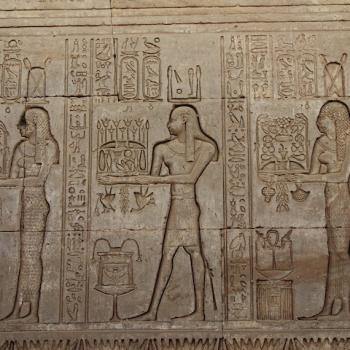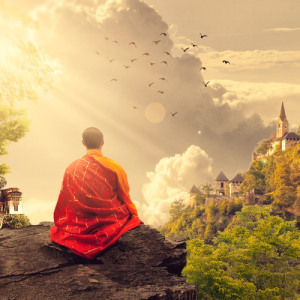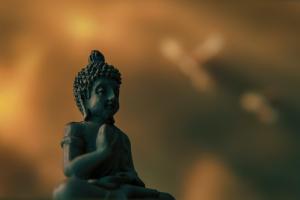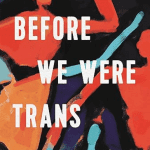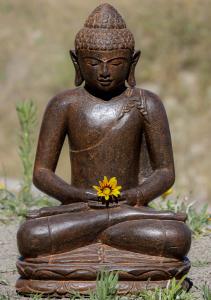 The false dichotomy of knowledge vs. emotion or inner experience is one that has done much damage to fledgling seekers of spiritual wisdom. Disconnecting themselves from the study of sacred literature or from the comprehension of the knowledge from which spiritual practice flows, they remain subject to the unsteady and untrustworthy ebb and flow of emotional sentiments. The other extreme is also an error; that of distrusting all inner experience and focusing solely on studies of sacred literature. In Japanese, the word for knowledge is ‘kokoroe’ ( 心得 ), a word comprised of two Kanji: one for heart/mind, and the other for ‘to acquire’. This seemingly simple word tells us a lot about the proper way to approach the concept of knowledge. It isn’t just about adding more data to our brain’s storage of facts but is more the practice of obtaining things by the cultivation of a better heart and mind. This really defies the way we think of knowledge in the West, and cuts to the core of why the Western spiritual seeker who eschews knowledge is demonstrating that they don’t really understand what it is and how to obtain it. This better mind and better heart are what is referred to as the ‘jihi no kokoro’ ( 慈悲の心 ) the benevolent heart.
The false dichotomy of knowledge vs. emotion or inner experience is one that has done much damage to fledgling seekers of spiritual wisdom. Disconnecting themselves from the study of sacred literature or from the comprehension of the knowledge from which spiritual practice flows, they remain subject to the unsteady and untrustworthy ebb and flow of emotional sentiments. The other extreme is also an error; that of distrusting all inner experience and focusing solely on studies of sacred literature. In Japanese, the word for knowledge is ‘kokoroe’ ( 心得 ), a word comprised of two Kanji: one for heart/mind, and the other for ‘to acquire’. This seemingly simple word tells us a lot about the proper way to approach the concept of knowledge. It isn’t just about adding more data to our brain’s storage of facts but is more the practice of obtaining things by the cultivation of a better heart and mind. This really defies the way we think of knowledge in the West, and cuts to the core of why the Western spiritual seeker who eschews knowledge is demonstrating that they don’t really understand what it is and how to obtain it. This better mind and better heart are what is referred to as the ‘jihi no kokoro’ ( 慈悲の心 ) the benevolent heart.
The jihi ni kokoro isn’t about emotion alone. It transcends the fluctuating emotions. Likewise, it isn’t just about intellectual data, but transcends the comprehension of the intellect. We study the philosophy of spiritual life-the writings of the ancient masters who have walked the path before us-in order to accurately explore that which lays beyond them (practices) and gaining something from both to bring us closer to that which we seek. It isn’t an either/or proposition, but a “this and that” proposition. Just as in the word kokoroe, where heart and mind aren’t differentiated, neither can we afford to create this false division between knowledge and practice. Dividing the two is like looking at a mountain. You can sort of appreciate the mountain peak from a distance, and gain a sense of awe (emotion), but until you actually gain a knowledge of mountain climbing and then climb to the peak, your experience will be lacking, and you cheat yourself of the fullest realization of the beauty of the mountain. Dividing knowledge and inner experience is like looking through a keyhole at an art gallery full of paintings and thinking you’ve appreciated art. Spiritual realization isn’t something you simply intellectually learn. It isn’t an emotional or inner experience alone. It is the fusion of the two into the jihi no kokoro.
If you want to be a real spiritual adept you must learn the philosophy, then do the hard work of practice, and then be patient. Realizations will come, but not if you rush, and not if you buy into the false dichotomies of Western thinking.




